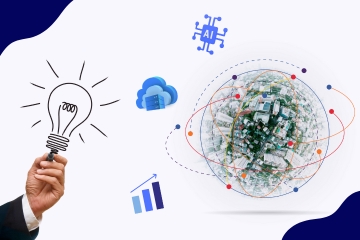Net zero refers to the balance between the amount of greenhouse gases emitted into the atmosphere and the amount removed. To achieve net zero, companies must drastically reduce their emissions and invest in projects that offset the remaining emissions, such as reforestation, renewable energy, and carbon capture technologies.
How Companies Are Leading the Way
Salesforce and the Net Zero Cloud
Salesforce is a prime example of a company taking bold steps towards achieving net zero. They have introduced the Net Zero Cloud, a comprehensive sustainability management solution designed to help organizations track, analyze, and reduce their carbon footprint.
Benefits of Salesforce Net Zero Cloud:
- Data Integration: Consolidates sustainability data across the enterprise, providing a single source of truth for carbon accounting.
- Real-Time Tracking: Enables real-time tracking of emissions and sustainability metrics, allowing for timely adjustments and improvements.
- Compliance and Reporting: Simplifies compliance with global sustainability standards and enhances transparency through detailed reporting.
- Strategic Planning: Provides insights and analytics to support strategic decision-making and long-term sustainability planning.
Market Adaptation to Net Zero
The shift towards net zero is reshaping industries and markets globally. Investors, customers, and regulators are increasingly prioritizing sustainability, leading to significant changes in business practices and market dynamics.
Key Trends in Market Adaptation:
- Investor Pressure: Investors are demanding greater transparency and accountability regarding environmental impact, pushing companies to adopt sustainable practices.
- Consumer Preference: Consumers are becoming more environmentally conscious, favoring brands and products that demonstrate a commitment to sustainability.
- Regulatory Requirements: Governments and regulatory bodies are implementing stricter environmental regulations, driving companies to reduce their carbon footprints.
- Innovation and Technology: Advances in technology are enabling more efficient and effective ways to measure, reduce, and offset carbon emissions.
Impact of Net Zero
Achieving net zero has profound implications for the economy, environment, and society. The transition to a low-carbon economy presents both challenges and opportunities.
Economic Impact:
- Job Creation: The green economy is expected to create millions of new jobs in renewable energy, energy efficiency, and other sustainable sectors.
- Cost Savings: Companies can realize significant cost savings through energy efficiency measures and sustainable practices.
- Market Competitiveness: Businesses that adopt net zero strategies can enhance their competitiveness and market positioning.
Environmental Impact:
- Climate Mitigation: Achieving net zero is crucial for limiting global temperature rise and mitigating the effects of climate change.
- Biodiversity Protection: Reducing carbon emissions helps protect ecosystems and biodiversity by reducing pollution and habitat destruction.
Social Impact:
- Health Benefits: Lower emissions result in improved air quality, leading to better public health outcomes.
- Community Resilience: Sustainable practices enhance community resilience by promoting environmental stewardship and resource conservation.
BugendaiTechs Contribution to Net Zero
At BugendaiTech, we are proud to contribute to the global effort to achieve net zero emissions. Our commitment to sustainability is reflected in our comprehensive approach to reducing our carbon footprint and supporting environmental initiatives.
BugendaiTechs Net Zero Initiatives:
- Energy Efficiency: We have upgraded our facilities with energy-efficient technologies and systems, significantly reducing our energy consumption.
- Renewable Energy: BugendaiTech is transitioning to 100% renewable energy sources for our operations, aligning with our long-term sustainability goals.
- Sustainable Transportation: We promote the use of electric vehicles and public transportation among our employees, reducing our transportation-related emissions.
- Waste Reduction: Our robust recycling programs and waste reduction strategies have minimized our environmental impact.
- Carbon Offsetting: We invest in reforestation and renewable energy projects to offset our residual emissions, ensuring a net zero balance.
- Employee Engagement: We actively engage and educate our employees on sustainability practices, fostering a culture of environmental responsibility within our organization.
Conclusion
The journey towards net zero is not just a corporate responsibility but a global necessity. Companies like Salesforce are leading the way, demonstrating that ambitious climate goals are achievable through innovation, collaboration, and commitment.
As more businesses and markets adapt to the principles of net zero, the positive impact on the economy, environment, and society will be profound. By working together towards a sustainable future, we can make a lasting difference in the fight against climate change.





Comments